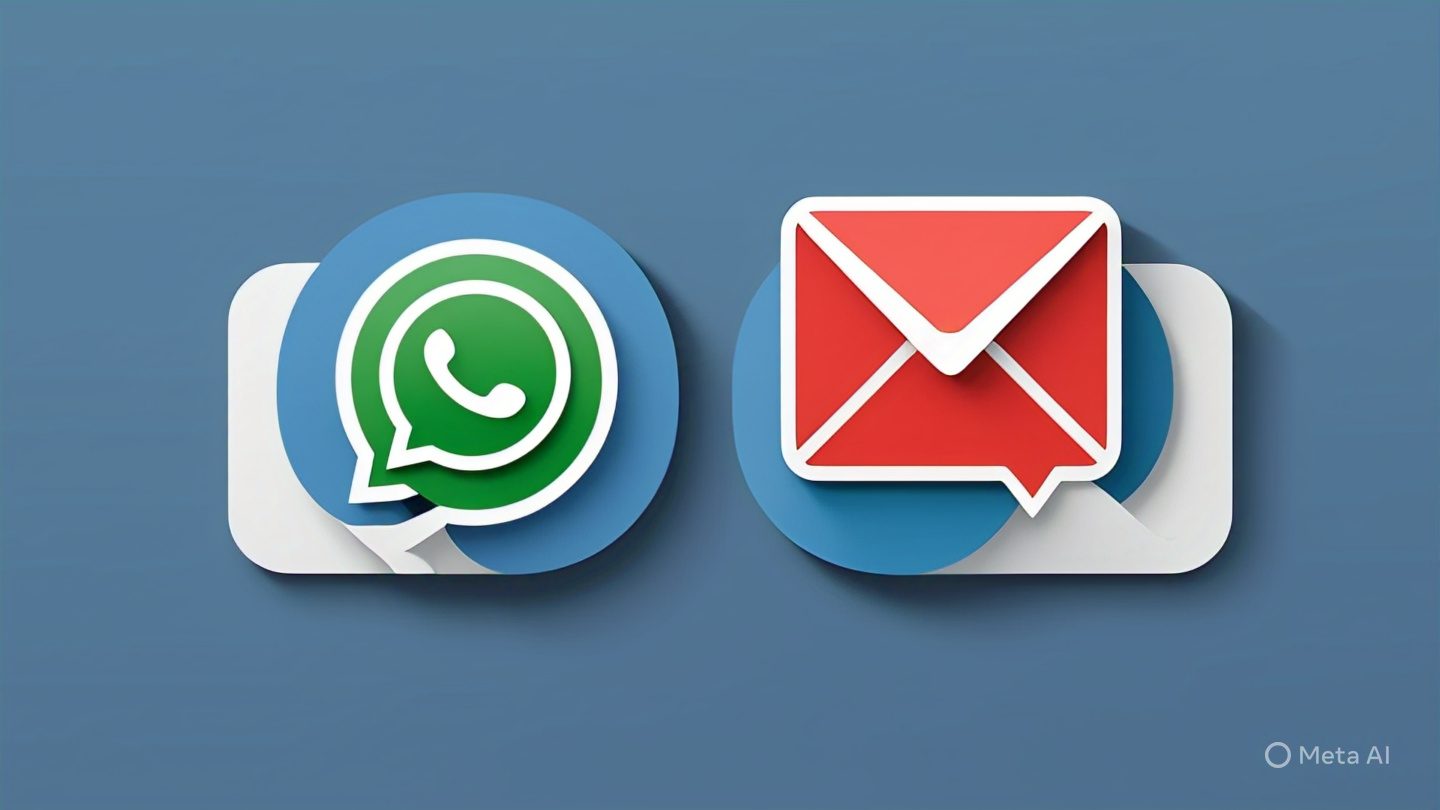WhatsApp vs. Email for Customer Engagement in 2025: Which Channel Should You Choose?

In the evolving landscape of digital communication, businesses are continually evaluating the most effective channels to engage with their customers. Two prominent contenders are WhatsApp and Email. Each offers unique advantages, and understanding their strengths can help businesses make informed decisions.
WhatsApp vs. Email: A Comparative Overview
| Feature | ||
|---|---|---|
| User Base | ~2.95 billion active users worldwide | ~4.6 billion active users worldwide |
| Open Rate | Approximately 98% | Around 20-25% |
| Engagement Rate | High; real-time conversations | Moderate; less immediate interaction |
| Content Suitability | Short, instant messages with multimedia | Detailed, long-form content with rich formatting |
| Cost | Variable; per-message cost via Business API | Generally low; cost-effective for mass communication |
When to Use WhatsApp
WhatsApp is particularly effective for:
-
Immediate Notifications: Sending time-sensitive updates like order confirmations or appointment reminders.
-
Customer Support: Providing real-time assistance and resolving queries promptly.
-
Promotional Campaigns: Engaging customers with personalized offers and promotions.
When to Use Email
Email remains a strong channel for:
-
In-Depth Content: Sharing newsletters, detailed product information, and company updates.
-
Formal Communication: Sending invoices, contracts, and official correspondence.
-
Automated Campaigns: Implementing drip campaigns and nurturing leads over time.
Integrating WhatsApp and Email for Optimal Engagement
Combining both platforms can enhance customer engagement:
-
Lead Nurturing: Use email for initial contact and WhatsApp for follow-ups.
-
Event Promotion: Send detailed event information via email and reminders through WhatsApp.
-
Customer Feedback: Collect feedback forms via email and quick surveys through WhatsApp.
Enhance Your Customer Engagement with WApopup
WApopup offers a comprehensive solution for businesses aiming to leverage WhatsApp for customer engagement. Key features include:
-
Official WhatsApp API Integration: Ensures reliable and compliant messaging.
-
Bulk Messaging: Send messages to large audiences using pre-approved templates.
-
Transactional Messaging: Automate messages triggered by specific customer actions.
-
Template Management: Create and manage message templates with ease.
-
Contact Management: Organize contacts through manual entry, CSV import, or third-party integrations.
-
Analytics and Reporting: Monitor message delivery, read rates, and engagement metrics.
-
Automation: Set up keyword-triggered auto-replies and scheduled messages.
-
WhatsApp Inbox: Facilitate two-way communication with customers.
-
WhatsApp Flows: Design structured interactions like surveys and appointment bookings.
-
API Integration: Seamlessly integrate with your website or applications.
Conclusion
Both WhatsApp and Email have distinct advantages in customer engagement. While WhatsApp offers immediacy and high engagement rates, Email provides depth and is cost-effective for mass communication. Integrating both channels can create a robust communication strategy, ensuring timely and relevant interactions with your customers.
To explore how WApopup can enhance your customer engagement through WhatsApp, visit www.wapopup.com.